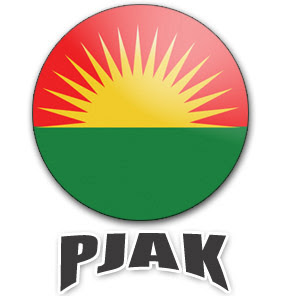Recent news reports from the semi-autonomous Kurdish region have depicted a flagrant violation of Iraqi sovereignty that cost Iran at least six soldiers from the elite Revolutionary Guards, and the death of senior officer in the Qom brigade. It is the latest chapter in a complex, ongoing conflict between the Islamic Republic and the shadowy Party for Free Life in Kurdistan (PJAK), that alternates as the local proxy of the Turkish based Kurdish Workers Party (PKK) and America’s cat’s-paw against Tehran’s Shi’a theocracy.

Iran's Boldest Bugbear
The facts are well established. A little over a week ago, the border dispute between Iran and the Kurdish region of Iraq was complicated by an armed Iranian incursion across the border to engage PJAK guerrilla fighters. Skirmishing continued in the days that followed. Heavy shelling displaced Kurdish villagers, as the major Iranian offensive launched against PJAK fighters bloodied the Sidakan district that sits some 100 kilometers northeast of the Kurdish capital of Erbil.
The immediate reaction to Iran’s armed invasion and heavy shelling of a Kurdish region that has been notable for its relative nonviolence in a country pockmarked with ethnic tension and broad-based insurgency is understandably critical. However, is it our place to prohibit Iran from exercising its right to target and destroy “terrorist” bases in border areas that operate in opposition to Iranian sovereignty, with the presumed support of Iraq’s Kurdish regional government? Of course, our knee-jerk presumption to condemn Iran’s military actions is rutted in past experience. But so is their response to hostilities emanating from Kurdistan.
First things first, it’s important to remember that the Kurdish people are the single largest ethnic minority in the world without a nation-state to call home. The closest they’ve come is the quasi-state of Kurdistan in northeastern Iraq, which has existed apart from Baghdad since the US-imposed no-fly zone was established after the 1991 Gulf War. However, the Kurdish people inhabit broad swaths of Turkey and Iran and more radical elements of their independence movement (often aligned with the leftist-nationalist PKK) have engaged in insurgency against the Turkish and Iranian governments.
In 2004, members of the PKK left Turkey to take their “freedom” fight to the Islamic Republic, founding PJAK as an Iranian equivalent to the original militant organization. Over the next year and a half, killed more than 120 members of Iran’s border security were killed fighting the newly formed paramilitary. Skirmishes continued throughout 2006, culminating in Iran’s decision to bomb the northeast of US-occupied Iraq, killing Kurdish insurgents and civilians, alike. By 2008, the conflict had intensified to the point that, under Iranian pressure, Iraqi Kurdistan’s ruling party, the PUK, ordered a military offensive against their fellow Kurds. Just this year, the lives of two Iranian police officers, four border guards and five members of the Revolutionary Guard have been claimed PJAK forces.
Despite high profile losses to hardened Kurdish guerrilla fighters, Iran stands poised to hold hard fought gains in this mountainous borderland. In response, the regional government of Iraqi Kurdistan has demanded that Iranian forces return territories gained in the recent incursion, including three PJAK compounds located within Iraq’s sovereign borders.
However, it would be shortsighted to assume that Iran’s intentions are purely self-defensive. Experts and analysts have hinted that Iran’s decision to accelerate tensions at this time may be related to Tehran’s broad-based strategy to encourage disorder in Iraq as America prepares its timely withdrawal. As Iranian backed Shi’a fighting groups intensify efforts against the last gasps of American occupation in southern Iraq, it would appear the Kurdish-controlled areas of northern Iraq are not exempt from Iran’s campaign of destabilization.